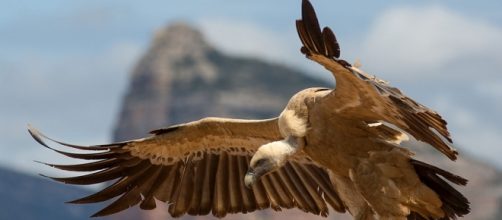Two gay vultures have been reported by AFP as adopting an abandoned egg of one of their own kind. Very weird things are known to happen in our natural world, but animal behaviour in zoos tops all of them. Vultures are facing a desperate future as the birds are declining in the wild across the world. Apart from poisons found in veterinary medications, they are shot and killed by farmers in many countries.
Zoochosis describes abnormal behaviour.
Strange behaviour in zoos can often be attributed to the fact that the Animals are stressed due to an inability to control their environment.
The Born Free organisation credits Bill Travers with coining the term zoochosis to describe abnormal behaviour in captive animals. Bar-biting, infanticide and a lack of secondary sexual characteristics are fairly common indictors of zoo stress.
Vultures at Nordhorn zoo.
Gay birds are not usually good for species in decline, but this pair are doing their bit for their species. The vultures are kept at the Nordhorn zoo in Germany. Isis and Nordhornare sitting on an egg that was abandoned by a female vulture. Ina Deiting, a spokesperson at the zoo told AFP that the female made no effort to “nest build” so zoo staff collected the egg and placed it in an incubator.
Unprecedented decline in vultures.
When the egg was introduced to the gay pair, Isis and Nordhorn took to the concept of parenting with enthusiasm. It is sincerely hoped that egg was actually fertilized and that their maternal efforts result in a new addition to the vultures of the world. Many animal activists are against the concept of zoos and with good reasons believe that all animals should be free to live in the wild.
In the case of vultures, there is a sad but definite need to breed the birds in captivity. The Save the Vultures Organisation states that the “unprecedented speed” of their decline has left some species critically threatened and others are now endangered. Their breeding programs involve captive breeding followed by release into the wild.
Griffon vultures disappear in the wild.
The zoo constructed a new facility for their Griffon vultures in 2005, as the birds had not bred in their old aviary. Griffon vultures are a very old species and the Hohle Felscaves in Germany yielded bone fragments that date back 35,000 years. By the middle of the eighteenth century they had died out in Germany, with only a few vagrant birds being slighted by 2006. Conservationists are hoping to release some of them into the Alps in the near future.

